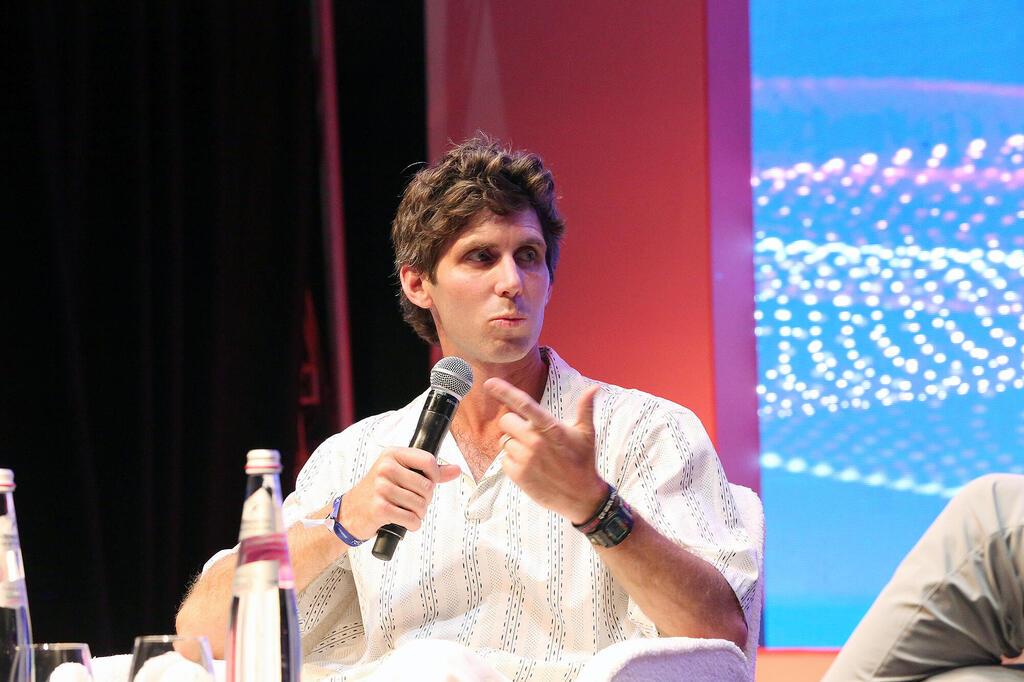Since the outbreak of the war in Gaza, Shaun Maguire, a senior American partner at Sequoia Capital, has become one of the strongest and most visible voices in support of Israel within Silicon Valley, and beyond. Despite a name that doesn’t hint at his Jewish heritage, Maguire was among the key figures who helped arrange Elon Musk’s visit to Israel shortly after the October 7 attacks and has remained outspoken on social media ever since.
Recently, reports emerged that a senior executive at Sequoia had resigned in protest, claiming the firm had not acted against Maguire despite some of his public statements, including comments about New York mayoral candidate Zohran Mamdani, drawing criticism.
1 View gallery


Shaun Maguire.
(Photo: Ryan Purvis)
Now, Sequoia is announcing the close of its $200 million sixth Seed fund, with Maguire planning to direct a significant portion of the capital to Israeli startups. Alongside the Seed vehicle, which focuses on companies at their earliest stages, the firm also raised a $750 million fund for investments up to Series A.
Sequoia raised a similar $195 million Seed fund in 2023 and said the modest size is intentional, allowing partners to focus on a smaller number of companies and work closely with founders. These Seed funds are part of Sequoia’s broader investment structure, which includes a $20 billion core fund and total assets under management of $56 billion.
“Sequoia’s strategy in Israel has not changed throughout the war,” Maguire told Calcalist after the fundraising. “On the contrary, we have only accelerated investments here, and we intend to continue. Dean Meyer, the newest partner in Sequoia’s Seed fund, is based in Israel. He arrived shortly after October 7, and I’ve spent almost half the year here myself. These things send a strong signal about our commitment to Israel.”
Maguire, who is married to an Israeli and owns a home in the country, says Sequoia’s structure has no geographical divisions but notes that “in Sequoia’s recent Seed funds, about 20% of the capital has gone to Israeli companies or those with strong Israeli ties.”
“We love being partners in very early-stage companies,” he adds. “In the past, we were among the first investors in Mellanox (acquired by Nvidia for $7 billion in 2020) and in Nir Zuk’s Palo Alto Networks. More recently, we were early backers of Wiz, which was sold to Google for $32 billion.”
Maguire declined to comment on the progress of regulatory approvals for that acquisition but said Sequoia intends to maintain its ‘fewer, deeper’ approach. “Each partner makes no more than three new investments per fund because we spend a lot of time with our companies, helping with everything from product development and market fit to recruiting senior executives in the U.S.”
He notes that 70% of Sequoia’s Israeli investments have been at the Seed or early stage, and 30% in growth rounds. Beyond high-profile investments like Decart, Sequoia has quietly completed three undisclosed investments in two cybersecurity startups and one data company.
Among its standout bets are some of the hottest companies in Israel’s current tech wave, often edging out local VCs. Its largest recent investment is in Decart, the AI startup founded by Dean Leitersdorf and Moshe Shalev, which has reached a $3.1 billion valuation in under two years. Sequoia led Decart’s $21 million Seed round and joined subsequent rounds, with total funding now at $156 million.
Other notable recent investments include Eon, a data-backup company that became a unicorn within a year after a $20 million Seed round, and Kela, a defense-tech startup that raised $100 million in its first year of operations.
During the war, foreign venture funds largely reduced their activity in Israel, leaving more room for those still investing. Asked whether competition might intensify after the war, Maguire replied: “We love competition. For every dollar we invest, competitors can add more. It only fuels the local ecosystem and creates new companies.”
Sequoia has long focused on cybersecurity, with notable investments in Wiz, Island, Cyera, and Zafran. Asked if the fund is shifting away from the sector due to inflated valuations, Maguire said: “We’ve always been strong in cyber, and the best companies in the world in this field have come from Israel. But recently, we’ve seen the quality of teams outside cyber improve dramatically, and many talented entrepreneurs are now working in other areas. That attracts us. Still, we don’t think cyber is overpriced, as proof, we made two new cyber investments this year that remain under the radar.”
As for the AI sector, Maguire sees Israel as poised for a breakout. “Before the ‘ChatGPT moment,’ there were few AI companies here, even though the talent existed, people like Ilya Sutskever, one of OpenAI’s founders, and Noam Shazeer, who Google paid $2.5 billion to recruit,” he said. “After the breakthrough, we’re now seeing many new AI companies. Decart is still exceptional, even globally, but there will be several more of that scale here. I can already identify 10–20 startups that could compete on a world stage, they’re just too young right now.”
Maguire concludes: “Israel is ideally positioned for the AI era. The skills needed for success in AI are similar to those in cyber. Many think Israel has missed the moment, but it’s too early to say. In five years, the world will be surprised by the strength of this sector in Tel Aviv, which could become the world’s third AI city, after San Francisco and Beijing.”

